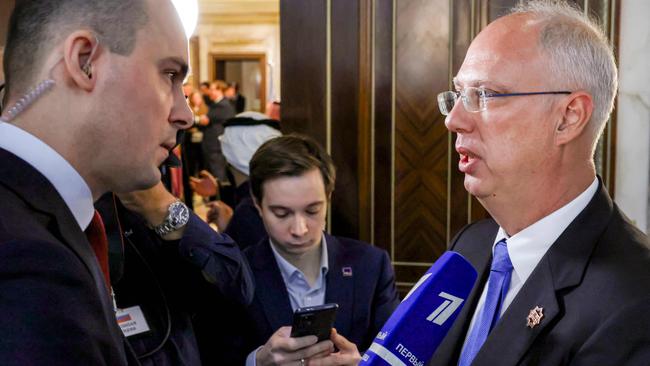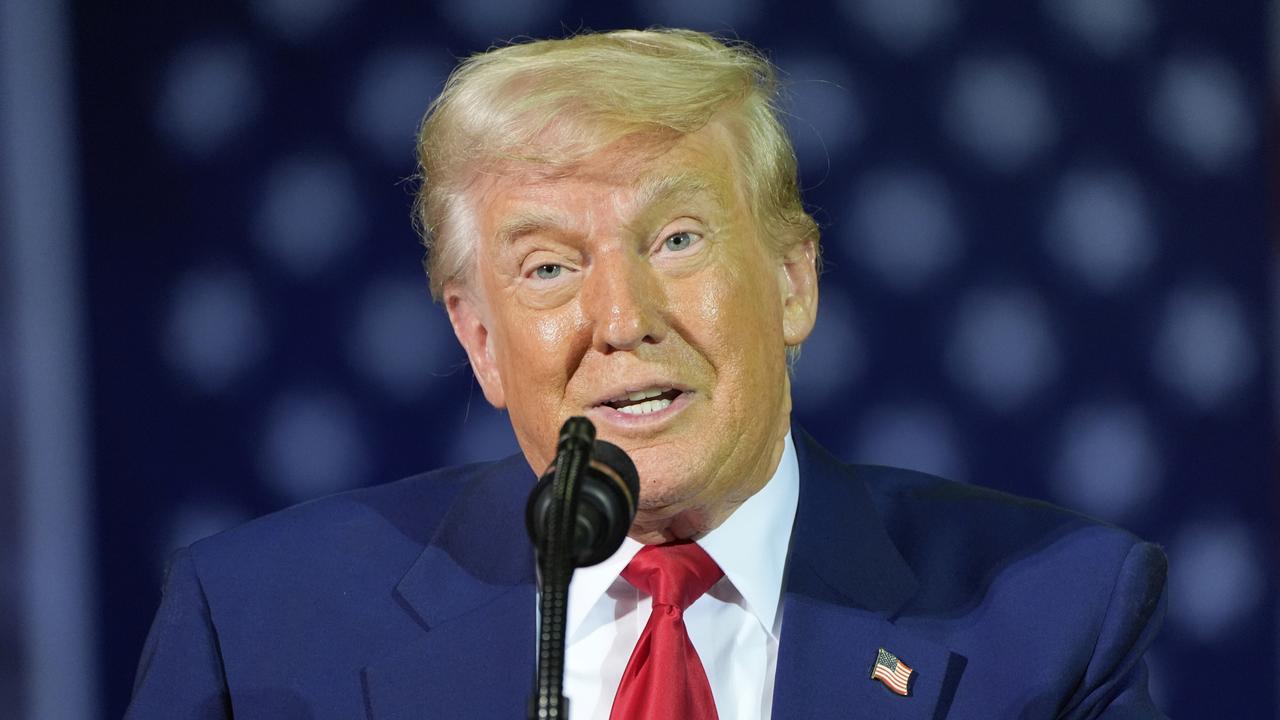Kremlin envoy meets US official at White House as ceasefire splutters
A top Kremlin envoy has completed talks with Donald Trump’s Russia negotiator at the White House, the first high-level meeting in the US since before the Ukraine invasion.

A top Kremlin envoy has completed two days of talks with Donald Trump’s Russia negotiator at the White House, the first high-level bilateral meeting in the US since before the Ukraine invasion in 2022.
Kirill Dmitriev, the Russian envoy, announced his visit on his Telegram channel, saying that “productive dialogue between Russia and the US isn’t optional – it is essential”.
His meetings with US envoy Steve Witkoff came as the administration’s push to halt the Ukraine war had appeared stalled.
Mr Dmitriev has emerged as an informal Russian go-between with Washington in two rounds of peace talks held in Saudi Arabia, as well as a recent prisoner swap with the Kremlin. He declined on Friday to discuss specifics of the talks.
But speaking to Russian news services outside the White House he said that he had met with “key leaders” of the Trump administration and that more talks were to come.
“Unlike the Biden administration, they listen to the position of Russia, understand the worries of Russia,” he said.
He said that there was “big interest” among US companies to return to Russia, after departing the country en mass in 2022 after Russia’s invasion of Ukraine.
The Kremlin has used Mr Dmitriev, who has a background in investment banking, as a channel to promote economic deals with the US. Since talks began in February, he has floated proposals in oil, gas and minerals, appealing to Mr Trump’s penchant for economic dealmaking.
Mr Trump is hoping to halt the Ukraine war in part to clear away the major obstacle to a broader rapprochement with the Kremlin. But Russia has slow-walked Mr Trump’s ceasefire drive, playing for time as it presses its battlefield gains and strives for maximum concessions in negotiations.
The Kremlin likely pushed for Mr Dmitriev’s visit to Washington because it sensed that Mr Trump’s patience with Russian President Vladimir Putin was eroding, and that the failure to achieve a peace settlement could be turning popular US opinion against Russia, said Thomas Graham, a distinguished scholar at the Council on Foreign Relations.
In an interview with NBC last weekend, Mr Trump said he was “pissed off” with Putin and was considering sanctions targeting Russian oil exports because he was dissatisfied with the pace of the Ukraine talks.
On Tuesday, 50 Republican and Democratic senators introduced a sanctions package that would target Russian oil, gas, uranium and other products if the Kremlin refuses to engage in good-faith negotiations. With little support in the House, the measure has scant chance of congressional approval. But it suggests cracks in Republican support for Mr Trump’s conciliatory policy toward Moscow.
In his meeting with Russian-speaking reporters on Friday, Mr Dmitriev played down reports of differences between the Kremlin and Trump administration, and said “there are a lot of rumours and distorted quotes”.
Mr Dmitriev said that the Trump administration “is ready to solve issues, they behave very respectfully”.
While the White House and Kremlin have touted success in talks, military officials say they see little progress on the ground.
A senior NATO official said Russia wasn’t observing a partial ceasefire on strikes on Ukraine’s energy infrastructure and didn’t appear to be planning to suspend its military operations.
The NATO official said that the Kremlin had about 620,000 troops in Ukraine and the Kursk region in Russia that Ukrainian forces invaded last summer. The Ukrainians in Kursk have been pushed back. He added that Russia would likely eject the remaining Ukrainian troops from the region.
Russia is also drafting 160,000 conscripts, which is more than last year, indicating that Moscow’s military aims haven’t changed.
Mr Dmitriev was sanctioned by the US Treasury Department after Russia’s invasion in 2022 and lately has been stressing the economic benefits of rapprochement. He has called for an end to sanctions on Russia, which he says have been ineffective and a blow to US businesses.
Mr Dmitriev is head of Russia’s sovereign wealth fund created by the Kremlin. His wife is a friend and business partner of Putin’s younger daughter, Katerina Tikhonova.
Eric Green, who served as the senior director for Russia on the National Security Council in the Biden administration, said there had historically been little trade between the US and Russia and so the deals Mr Dmitriev was offering were likely to be of little relevance to the broader US economy. There was also little reason to expect Russia’s investment climate to improve in the near future, he said.
The Wall Street Journal



To join the conversation, please log in. Don't have an account? Register
Join the conversation, you are commenting as Logout